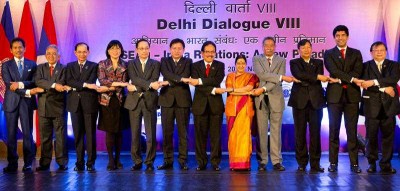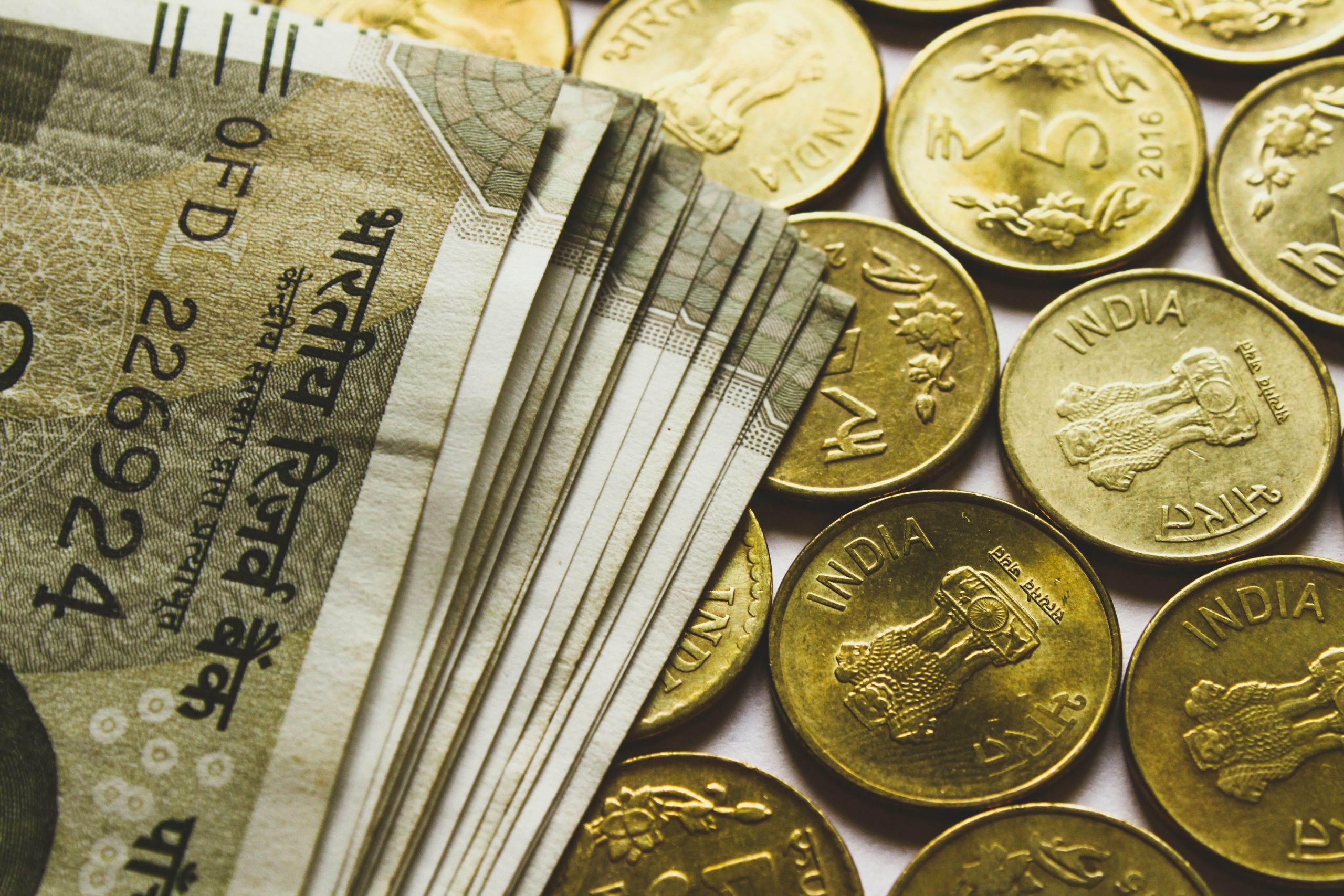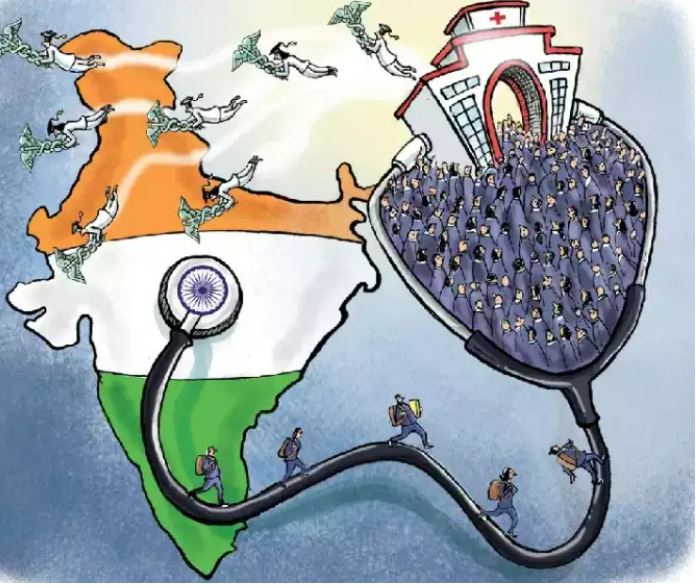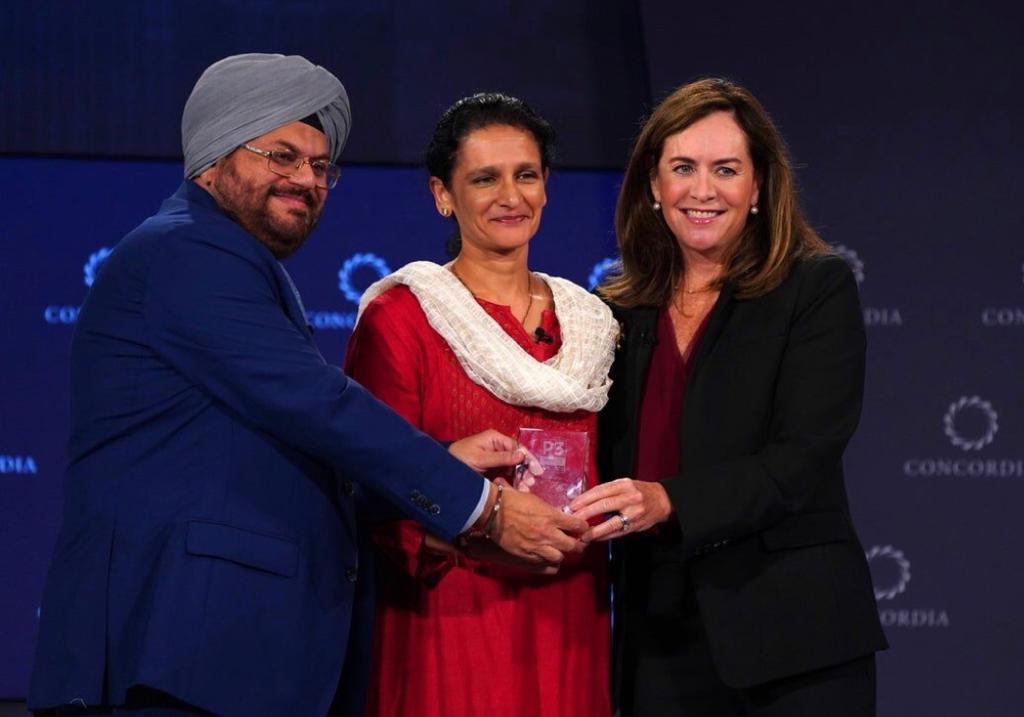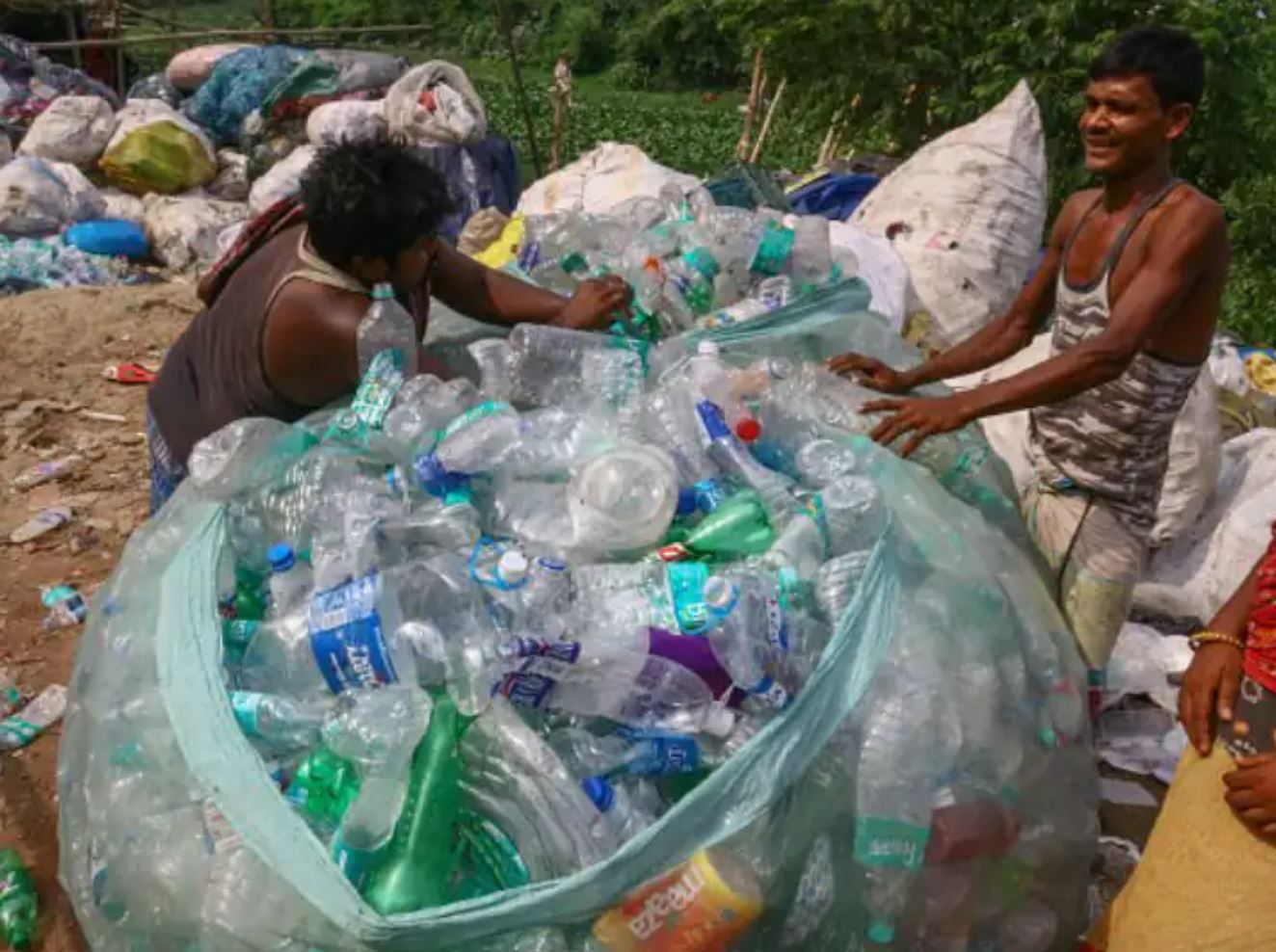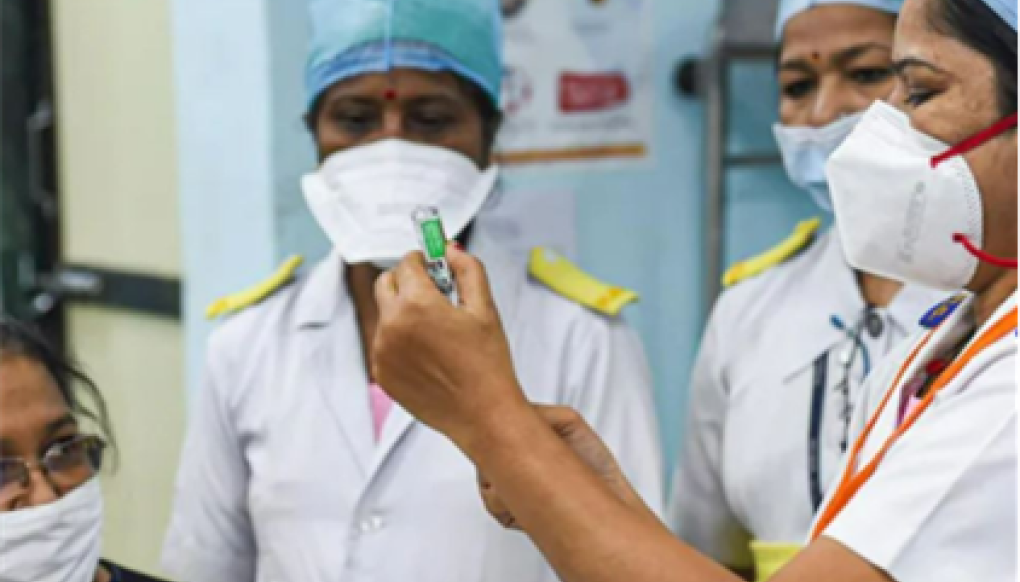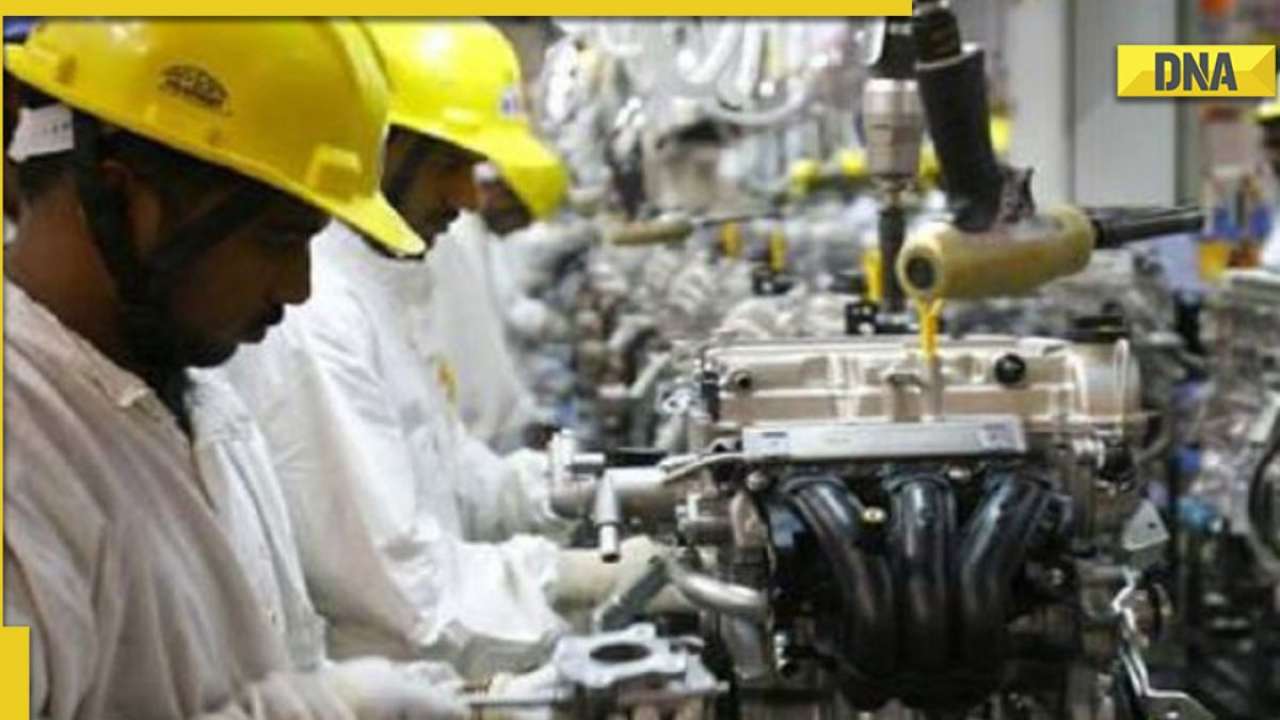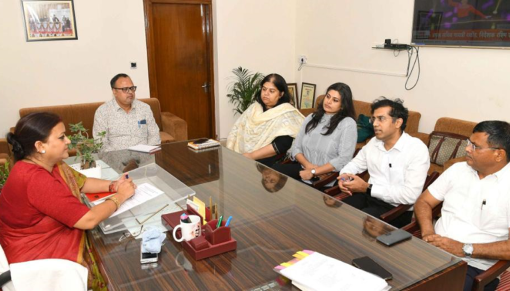The India–ASEAN relationship received a shot in the arm with the conclusion of the 8th Delhi Dialogue on 17–19 February 2016. Since 1991 India has been aggressively pursuing increased trade and strategic relations with Southeast Asian Countries as a part of its ‘Look East’ policy. Now, ASEAN has grown to be India’s fourth largest trading partner after China, the European Union and the United States.
The goal of courting ASEAN was to build historical and cultural ties, to expand markets, counter Chinese influence in the region and improve India’s standing as a regional power. But India’s relationship with its regional neighbours has not matured to the extent that it was originally envisaged. A stronger standing with ASEAN will give a major boost to India’s stature as a growing global power. Since the conclusion of a free trade agreement (FTA) with ASEAN in 2009, trade has grown consistently and investment flows have been substantial, but the full potential of India–ASEAN relations is yet to be realised.
The Delhi Dialogue is an annual event for discussing political, security and economic issues between ASEAN and India. The dialogue focused on several issues and had a business, ministerial and an academic session. From a trade perspective, it is of the utmost significance. With the conclusion of the ASEAN Economic Community (AEC)in December 2015 and with the Regional Comprehensive Economic Cooperation agreement (RCEP) negotiations in full swing, ASEAN is poised to become the economic powerhouse of Asia. Realising this, the Indian government has made substantial efforts to boost relations with ASEAN.
The dialogue dwelt on the steps to be taken by both India and ASEAN to smooth the conclusion of the RCEP negotiations by the end of 2016 and the implications of the recently concluded Trans-Pacific Partnership (TPP) for the region.
Officials emphasised that a fast conclusion of the RCEP would deepen integration among the member countries, while promoting goods and services trade, investment, the IT sector, competition and dispute settlement. Given that the possibility of India joining the TPP is still a long way off, being a member of the RCEP will help India prepare itself to better engage with mega FTAs in the future. The RCEP itself will also benefit India. RCEP is an ambitious mega FTA that covers 16 countries, a third of the world’s economy and 45 per cent of the global population.
The Delhi Dialogue provided an opportunity for India to assess how it would need to adjust to mega FTAs and other formal blocs, such as the One Belt, One Road initiative, emerging in the region. These blocs will be vital for both India’s security and economic future. Also highlighted were the expected gains to India’s services sectors from the conclusion of the India–ASEAN services agreement and the RCEP.Another major issue for India is the need to link into global value chains. The discussion covered the steps already undertaken to better coordinate with ASEAN on industrial value chains, and how best to integrate small- and medium-sized enterprises (SMEs) into regional value chains, while ensuring that they have the required knowledge to navigate the complicated export procedures.
The Ministry of External Affairs seized the opportunity to explain the implications of its 5 billion rupee (about US$73 million) project development fund to encourage integration of Indian producers into ASEAN’s regional value chains. This initiative plans to help create manufacturing hubs in Cambodia, Laos, Myanmar and Vietnam leading to the establishment of a new regional economic order within ASEAN.
The growing strategic partnership between India and ASEAN needs to be further strengthened by consistent engagement with the ASEAN member countries. Both ASEAN and India need each other. For ASEAN, India not only offers a huge domestic market with a growing aspirational middle class, but also a growing working population.
Given that India is a world leader in the IT sector and an attractive destination for foreign direct investment, there are huge opportunities for ASEAN to forge a deep relationship with India. Focusing on trade in services with ASEAN will give India an opportunity to use its competitive strength to become a services export hub for the ASEAN region. Being a part of the AEC, RCEP and having strong relations with ASEAN through its existing FTA will facilitate further economic reforms in India. And, more significantly, it will allow India to establish itself as a growing economic power in Asia.
Geethanjali Nataraj is a senior fellow at the Observer Research Foundation and a policy lead in the Knowledge Partnership Programme between IPE Global and DFID-India.




